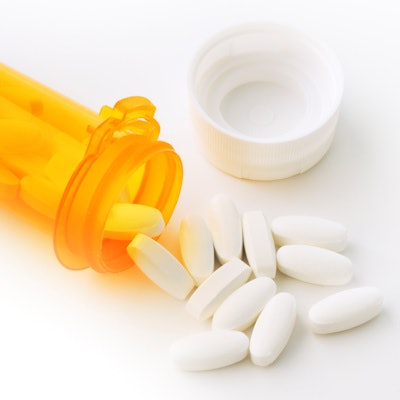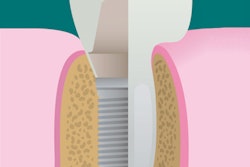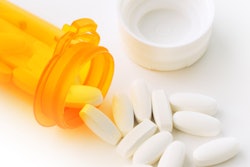
Can caffeine help solve the opioid crisis? Research suggests that acetaminophen with caffeine may be a viable alternative to opioids after dental implant treatment.
In a triple-blind, randomized clinical trial, researchers from Iran compared pain and swelling incidence for nearly 80 patients after implant treatment. Their findings were published in the Journal of Cranio-Maxillo-Facial Surgery (July 5, 2017).
"Our study showed that nonopioid alternatives are an acceptable way to control postoperative pain," wrote the authors, led by Sahand Samieirad, DDS, from the Oral & Maxillofacial Diseases Research Center at Mashhad University of Medical Sciences. "Therefore, it is important to recognize the efficacy of nonopioid treatment options, such as acetaminophen and NSAIDs [nonsteroidal anti-inflammatory drugs] for postoperative pain management."
Caffeine targets inflammation
With the ongoing opioid epidemic, researchers are keen to find new pain management options for surgical dental procedures. Previous studies have found that caffeine decreases pain in the central nervous system; however, the scientific community has not readily studied the stimulant's effect on tissues of the oral cavity. The researchers, therefore, conducted a randomized clinical trial to determine whether acetaminophen and caffeine could be a reasonable alternative to acetaminophen with an opioid after implant treatment.
“Nonopioid alternatives are an acceptable way to control postoperative pain.”
The study included nearly 80 patients who were scheduled for dental implant therapy. Half of the patients were given 10 caplets of 300 mg of acetaminophen with 20 mg of caffeine (acetaminophen caffeine), while the other half were given 10 caplets of 300 mg of acetaminophen with 20 mg of codeine (acetaminophen codeine). The researchers chose not to include a control group in their study because of ethical issues related to lack of pain management for acute pain after surgical dental procedures.
Patients' pain and swelling were assessed at regular intervals until three weeks after surgery by using a visual analog scale (VAS), which allows patients to indicate their pain level by placing a point on a continuous line. Higher scores indicate higher levels of pain.

The group that took acetaminophen codeine reported initial lower levels of pain than the caffeine group; however, the difference was not significant 30 minutes postsurgery, as well as at 24 hours postsurgery or after. Furthermore, the acetaminophen caffeine group reported significantly lower levels of inflammation for the first three days.
"Severity of swelling in the caffeine group was less than in the codeine group, so it was concluded that the anti-inflammatory effect of caffeine was significantly stronger than that of codeine, which might be attributed to the vasoconstrictor mechanism of caffeine in blood vessels of the maxillofacial area," the authors wrote.
While the opioid group may have experienced significantly less pain, both groups fell within the moderate pain category on the VAS, they noted. In addition, no patients from either group developed peri-implantitis within six months of surgery, and all implants showed adequate osseointegration.
Because of these results and the known drawbacks of opioids, the researchers deemed that acetaminophen with caffeine may be the better clinical option after implant therapy. The study results also suggest that further research on the uses of acetaminophen caffeine for dental surgery may be beneficial.
"It should be noted that the severity of pain expressed was approximately the same in both groups," the authors concluded. "Generally, the analgesic effect of caffeine was close to that of codeine. In addition, caffeine does not have the side effects of opioids derived from codeine."



















